Publications
Articles, publications, books, tools and multimedia features from the U.S. Institute of Peace provide the latest news, analysis, research findings, practitioner guides and reports, all related to the conflict zones and issues that are at the center of the Institute’s work to prevent and reduce violent conflict.
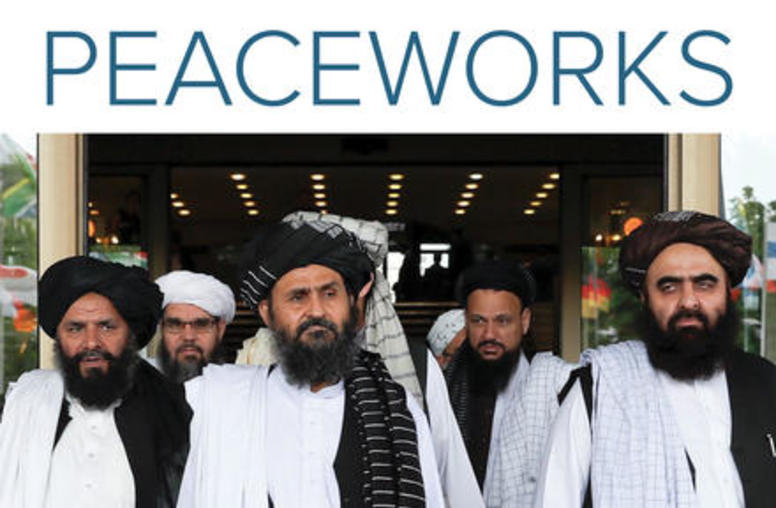
Insurgent Bureaucracy: How the Taliban Makes Policy
The system of shadow Taliban governance and the experiences of civilians subject to it are well documented. The policies that guide this governance and the factors that contribute to them, however, are not. This report examines how the Taliban make and implement policy. Based on more than a hundred interviews and previously unreleased Taliban documents, this report offers rare insight into Taliban decision-making processes and the factors that influence them.

Tegan Blaine on How Climate Change Impacts Global Conflict
USIP’s Tegan Blaine says we must be cognizant of how efforts to reduce climate change can exacerbate instability and conflict, as the resources needed for a greener global economy “are in places where the countries are already politically fragile” and higher demand adds more stress to already burdened institutions.

From the Street to the Peace Table: Nonviolent Mobilization during Intrastate Peace Processes
Though nonviolent grassroots movements often help spur transitions to peace and democracy, they are rarely invited to play a role in formal peace processes. Yet these movements can and do influence the course and content of peace negotiations and contribute to the quality and durability of the resulting peace. This report examines the strategies they employ and provides insights for grassroots movements currently mobilizing for peace or change in Myanmar, South Sudan, Syria, Yemen, and elsewhere.

Donald Jensen on Ukrainian President Zelensky’s Visit to the U.S.
Ahead of Ukrainian President Volodymyr Zelensky’s long-awaited visit to Washington, USIP’s Donald Jensen says many in D.C. “see the [Ukrainian] fight against corruption as a key benchmark” in determining the future of U.S. assistance, including for Ukraine’s ongoing conflict with Russia.

Lucy Kurtzer-Ellenbogen on a U.S.-Israel Relationship Reset
Iran and the Israeli-Palestinian conflict will likely top the agenda during Israeli Prime Minister Naftali Bennett’s meeting with President Biden. But USIP’s Lucy Kurtzer-Ellenbogen says the talks will also serve as a “relational reset … this will really be about setting a tone between these two new leaders.”
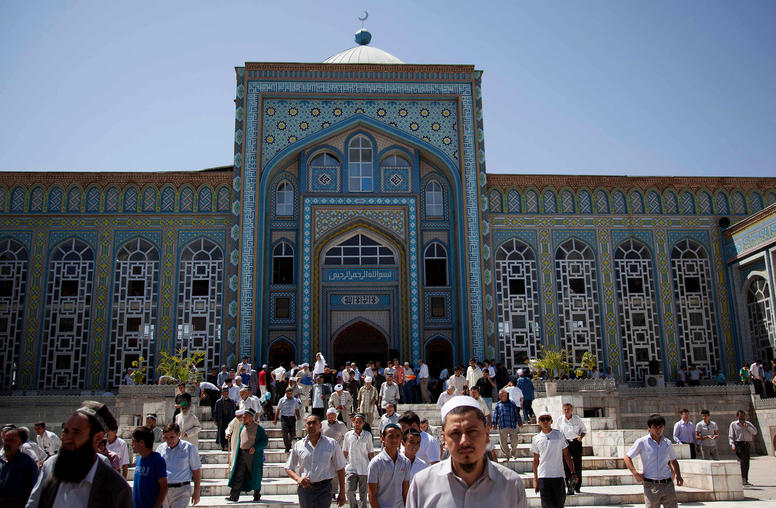
Engaging with Muslim Civil Society in Central Asia: Components, Approaches, and Opportunities
When Western policymakers and development practitioners turn their attention to Central Asia, they too often overlook Muslim civil society as a potential partner for addressing the region’s economic and social problems. This report, which is based on dozens of interviews with representatives of Muslim civil society organizations in Kazakhstan, Kyrgyzstan, Tajikistan, and Uzbekistan, is intended to help generate a much-needed conversation about Muslim civil society in Central Asia and how Western donors and practitioners can begin tapping their potential.
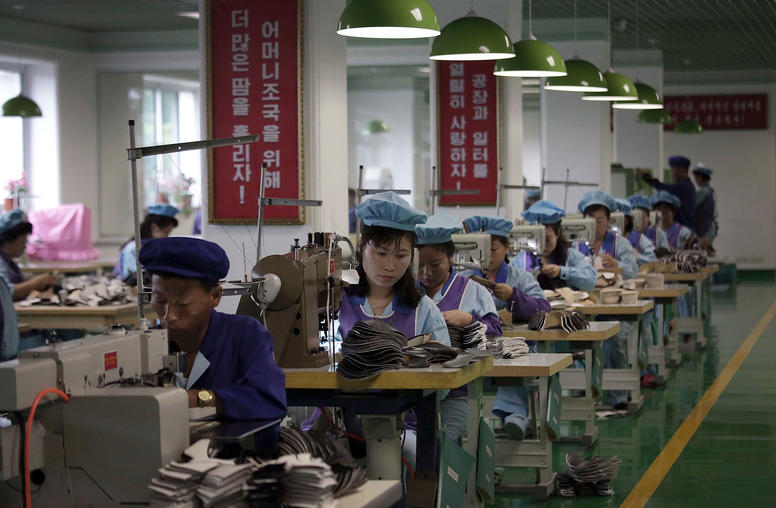
Removing Sanctions on North Korea: Challenges and Potential Pathways
Sanctions have been a key part of US and international policy toward North Korea since the Korean War. In more recent decades, sanctions have been used to deter North Korea from pursuing nuclear weapons and ballistic missiles programs. This report describes the impact sanctions have had on North Korea and examines the question of whether a different approach—one focused on sanctions relief and removal—might better facilitate long-term peace and stability on the Korean Peninsula.
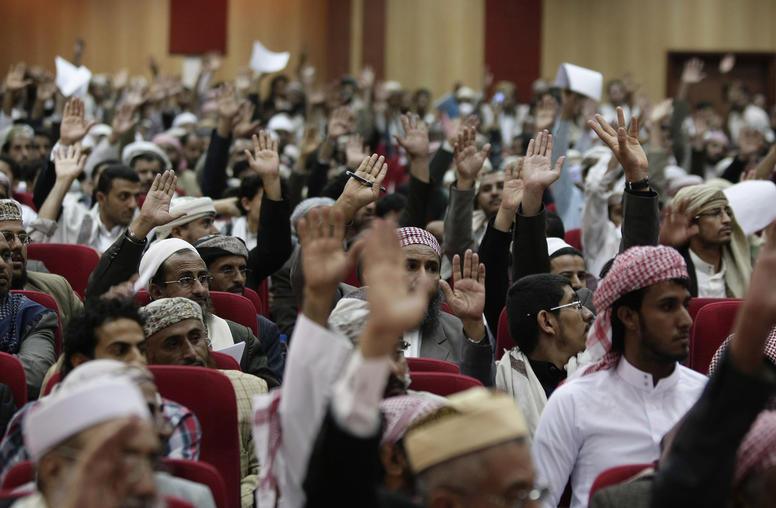
Dialogues nationaux sur la consolidation de la paix et les transitions créativité et pensée adaptative
Dans le meilleur des cas, les processus de dialogue national promettent d’apporter un élan décisif à la transformation inclusive du conflit. Ce rapport examine les dialogues dans six pays: la République Centrafricaine, le Kenya, le Liban, le Sénégal, la Tunisie et le Yémen. Ces divers processus montrent les possibilités de favoriser le dialogue, de forger des accords et de progresser vers la paix; et le rapport offre des conseils détaillés sur les possibilités et les aspects pratiques pour ceux qui envisagent d'organiser un dialogue national.

William Taylor on the Russia-Ukraine Crisis
As Russia continues its military build-up along the Ukrainian border, USIP’s Ambassador William Taylor says diplomatic talks are the best path toward a peaceful resolution — but that we still don’t fully understand Putin’s intentions: “Is he bluffing? Is he trying to intimidate … or is he serious about invading?"
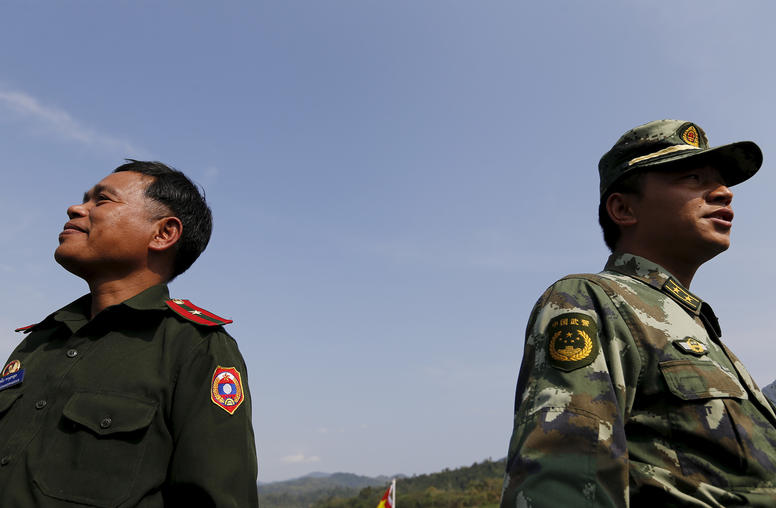
China’s Security Force Posture in Thailand, Laos, and Cambodia
China’s geo-economic influence is empowering the expansion of its security force posture in the Lower Mekong region, which should be of concern to both maritime Southeast Asia and the United States. While Thailand, Laos, and Cambodia—the geographic core of mainland Southeast Asia—are demonstrating resilience and sustaining some strategic autonomy, several trends indicate that their options may be increasingly limited. This report looks at China’s security force posture in these nations, the possible ramifications of that posture, and considerations for balancing U.S. policy and outreach.